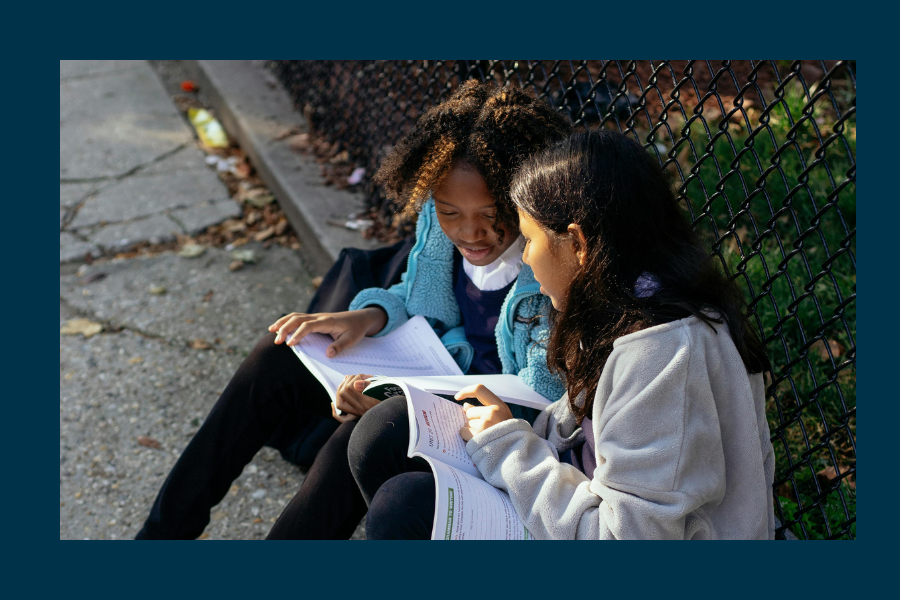As the lazy days of summer wind down, it’s time to start thinking about the upcoming school year. Moving from vacation mode to school mode can be challenging for many families. At United Through Reading, we understand the importance of a smooth back-to-school transition, especially for military families dealing with deployments or moves. Here are eleven practical tips to help make the shift easier for everyone.
Gradually Adjust Sleep Schedules
Start adjusting bedtimes and wake-up times about two weeks before school starts. Move bedtimes 15 minutes earlier every few days until you reach the desired school night bedtime. This gradual approach helps children’s bodies adapt more easily to the new schedule.
Reinstate Routines
Reintroduce school year routines before the first day. This includes meal times, homework hours, and evening rituals like bath time and reading before bed. Consistency in routines helps children feel secure and know what to expect.
Organize and Prepare Together
Involve your child in back-to-school preparations. Go shopping together for school supplies, organize the study area, and pick out first-day outfits. This involvement builds excitement and gives children a sense of control over the upcoming changes.
Encourage Reading
As the new school year approaches, it’s crucial to increase reading time for children gradually. Regular reading sessions, especially through the United Through Reading (UTR) app, can help kids transition smoothly from the unstructured summer days to the more focused school environment. The UTR app allows families to share stories and create a consistent reading routine, even when separated by distance. Increasing reading time sharpens their literacy skills and helps to reestablish a routine, making the back-to-school adjustment easier. Additionally, reading can stimulate their imagination, improve concentration, and boost academic performance, setting a strong foundation for the upcoming school year.
Discuss Expectations and Concerns
Have open conversations about the upcoming school year. Discuss any worries your child might have and set positive expectations together. For children in military families, address any concerns about a parent’s deployment or a recent move to a new school.
Plan Special End-of-Summer Activities
Create positive memories to cap off the summer. Plan a special outing or activity in the last week before school starts. This gives children something to look forward to and helps them feel they’ve made the most of their break.
Ease Into Learning
Incorporate light learning activities into the last weeks of summer. This could be educational games, museum visits, or simple science experiments at home. The goal is to gently reactivate “school mode” thinking.
Establish a Family Calendar
Create a visible family calendar that marks important school dates, extracurricular activities, and family events. This will help everyone visualize the upcoming schedule and reduce anxiety about the unknown.
Practice the School Routine
Do a “dry run” of the school routine a few days before school starts. Wake up at the regular time, go through the morning routine, and even visit the school if possible. This rehearsal can alleviate first-day jitters.
Focus on the Positive
Maintain an upbeat attitude about returning to school. Share your own positive school memories and express excitement about the new experiences and friends your child will make.
Explore School-Themed Books
Reading books about school experiences can be a powerful tool to help children process their emotions about returning to or starting a new school. Stories featuring characters navigating similar situations can provide comfort and spark important conversations. These books often address common concerns like making friends, dealing with new teachers, or overcoming first-day jitters. As you read together, encourage your child to share their thoughts and feelings about the characters’ experiences. This can help them articulate their anxieties and excitement about school.
Additionally, seeing characters overcome challenges can boost your child’s confidence and provide strategies for handling school-related worries. Consider visiting your local library to find age-appropriate books about starting school, making friends, or dealing with changes. United Through Reading also has a selection of these titles on our curated book list. Reading these stories together can create a safe space for your child to explore and express their emotions about the upcoming school year.
Recommended School-Themed Books
For Elementary School:
First Day Jitters by Julie Danneberg
The Hundred Dresses by Eleanor Estes
The King of Kindergarten by Derrick Barnes
The Kissing Hand by Audrey Penn
Miss Bindergarten Gets Ready for Kindergarten by Joseph Slate
The Night Before First Grade by Natasha Wing
Chrysanthemum by Kevin Henkes
Wemberly Worried by Kevin Henkes
For Middle School:
All of the Above by Shelley Pearsall
Fish in a Tree by Lynda Mullaly Hunt
Middle School, The Worst Years of My Life by James Patterson
New Kid by Jerry Craft
Be Prepared by Vera Brosgol
Real Friends by Shannon Hale
Wonder by R.J. Palacio
The Fourteenth Goldfish by Jennifer L. Holm
These books cover various aspects of school life, from first-day nerves to making friends and dealing with changes. They can serve as excellent conversation starters for discussing school-related emotions and experiences.
Remember, every child is different, and what works for one may not work for another. Be patient and flexible as you navigate this transition. For military families dealing with unique challenges, don’t hesitate to contact school counselors or military family support services for additional assistance.
At United Through Reading, we believe in the power of connection through shared stories. Consider incorporating our reading programs into your back-to-school routine to maintain strong family bonds, especially during time apart. With these tips and a positive attitude, you can confidently and enthusiastically help your child start the new school year. Here’s to a great year of learning and growth!

